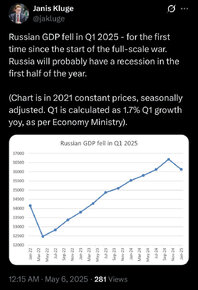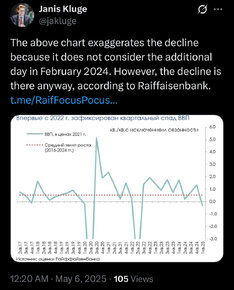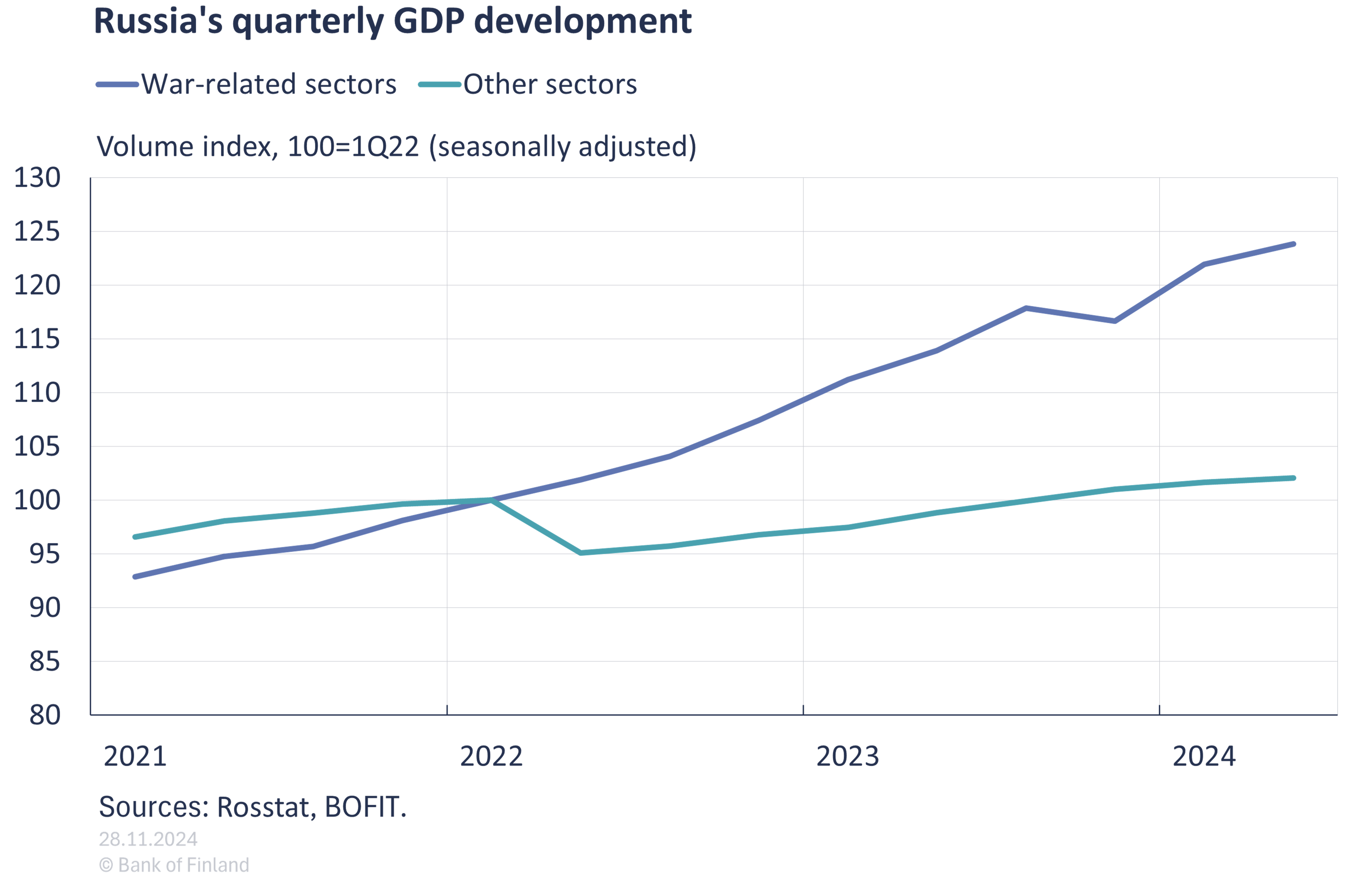- Thread Starter Thread Starter
- #2,661
Moved to appropriate thread.It's a bit curious how a developing country with modest economic output and significant brain drain still manages to cause the West so many strategic headaches. What's the root of that leverage? Is it "just" the nuclear arsenal, the oil and gas, and the residual competence of the old Soviet intelligence apparatus? If that's the case, will that influence erode once (or if) the world transitions off fossil fuels?
It's really fascinating how it managed to dissuade the West for long enough to decisively support Ukraine for the longest time. Most of the support came a day late and a dollar short. And I don't think this will change with the minerals deal.
I think that your characterization of Russia as a developing country with a modest economic output is inaccurate. Nominal GDP is often looked for various reasons, but if you want to compare the size of an country's economic output you have to look at purchasing power parity. You'll notice that Russia is one of the largest economies in the world. It's certainly much smaller then true superpowers like the USA and China, and the combined EU (if it ever becomes properly combined it will likely be another superpower). But compared to a limited effort from the west, Russia can put up a decent showing. It's this point that I think many people keep missing about Russia. Russian automotive is unimpressive in a western car market, but it can be quite serviceable in supporting this war effort, consider the bukhanka vans. Russia is a major producer of metals including some fairly high tech stuff (consider both Boeing and Airbus want Russian titanium alloys), agricultural products, and of course energy resources.
Also consider that Russia's multi-vector foreign policy has borne fruit. Russia made friends with South Korea, played ball with Israel, expanded their influence in Africa, and maintained good relationships with China, India, and Indonesia. As a result Russia is harder to isolate. And the west itself isn't all that united. There isn't necessarily the will or appetite for a strategic defeat of Russia in all corners, and it seems when a country goes long term for that kind of goal (consider US sanctions), if it experiences a change of leadership it becomes likely that the opposition picks up the idea of improving relations with Russia, or at least spending less time focused on countering Russia. In part it's also important to note that outside of a strategic nuclear arsenal, Russia isn't really a an existential threat to Europe or the USA. Both would win in a conventional war if they were willing to keep fighting until victory. The EU could lose some sort of short hot war, if Russia plays their cards very well, the EU plays theirs poorly, and the circumstances are right. But it's hard to tell an Italian that he needs to see his already eroding quality of life take another dip because they need to spend money on a buildup to fight Russia... in Eastern Ukraine. It's why you saw a big boost in anti-Russian sanctions and sentiment during and shortly after the events of '14-'15, but then it waned and there was even talk of lifting sanctions. In a way by not being as threatening, but at the same time expensive to deal with, Russia can make it easier to not confront them while playing on the lack of unity in what is after all a fairly diverse group of separate sovereign nations, with their own interests, problems, and priorities. Remember there's always a scenario for Europe to hand Ukraine off to Russia and go back to buying cheap resources and selling Russia manufactured goods. The EU as a whole is highly unlikely to go down that path, but individual countries could, consider Hungary and Slovakia.
Russia also inherited far more than the Soviet intelligence apparatus. Russia inherited many cutting edge scientific and military capabilities that remained relevant much longer due to the post-Cold War draw down. Russia beat the US to a working hypersonic missile capability by years. And Russia had at least 3 hypersonic weapon systems in service before the US had one. Pieces of Soviet tech like the MiG-31, or Izd 4202, have yielded fruit in strange and sometimes unforseeable ways. A supersonic interceptor meant to down B-52s over the Arctic is now a platform for an air-launched ballistic missile? The US could theoretically mirror this, but the US doesn't have a MiG-31 and developing one is costly and timeconsuming. Sometimes having the right pieces in your hands enables you to do things that others could theoretically, but won't practically. Russia inherited aerospace and MIC capabilities out of all proportions to their economy, and made a wise choice to focus on exporting new-built military goods, while hanging on to much of their Soviet stockpile, instead of simply selling it off like Ukraine did. Consequently Russia managed to maintain large functioning pieces of the MIC and even made it commercially viable. The most exported MBT of the 21st century is?
I think the situation is a combination of the will for confronting Russia being weak due to competing priorities, Russia's economy being stronger then it gets credit for, and Russia inheriting far more than you mention. But I think a big part of this equation too, and something that probably goes well beyond the scope of this thread, is that the world is no longer quite so dominated by a handful of western countries. Which means it's not Russia vs the world, it's Russia vs an indecisive bloc of countries, and one superpower, both willing to support Ukraine but not willing to gear up for a large war.
On a side note, aid to Ukraine falls into an interesting paradox. Objectively speaking the volumes of aid Ukraine has received are staggering. At this point it's hard to count just how many artillery pieces, armored vehicles, and munitions Ukraine has received. But at the same time it hasn't been enough. It's both massive and insufficient at the same time. I think this is a good indicator that if the collective west really wants Ukraine to defeat Russia, they will have to get their shit together and drastically increase military production on a scale that they so far simply haven't been willing to.





